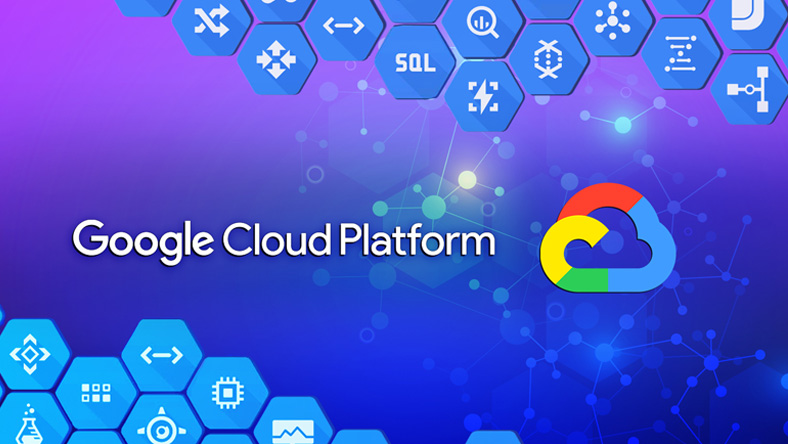Google Cloud Platform(GCP)

Contact Form
Overview
Students Prerequisites
Course Curriculum
Duration of the Course
Instructor Profile
Overview
Google Cloud Platform offers four main kinds of services: Compute, Storage, Big Data, and Machine Learning. This course focuses mostly on the first two, together with Google Virtual Private Cloud (VPC) networking. This module orients learners to the basics of Google Cloud Platform. It traces the evolution of cloud computing and explains what is unique about Google’s approach to it.
Google Cloud Platform is one of the fastest growing cloud service platforms offered today that lets you run your applications and data workflows at ‘Google-sized’ scale.
Students Prerequisites
- Basic understanding of technology
Course Curriculum
Module 1: Introduction to Google Cloud Platform
- Overview of Cloud Computing and GCP
- GCP Global Infrastructure:
- Regions, Zones, and Edge Locations
- Core GCP Services and Solutions
- GCP Free Tier: Setting Up a GCP Account
- Google Cloud Console Overview
- Understanding Projects, Billing, and Resources in GCP
Module 2: Core GCP Services
Compute
- Google Compute Engine (GCE):
- Virtual Machines: Launching and Managing Instances
- Preemptible VMs and Machine Types
- Instance Groups and Auto Scaling
- Load Balancing
- Google Kubernetes Engine (GKE):
- Introduction to Kubernetes and Containers
- Deploying and Managing Applications
- Cluster Scaling and Management
- Cloud Run:
- Serverless Container Deployment
- App Engine:
- Standard vs. Flexible Environments
- Deploying Web Applications
Storage
- Cloud Storage:
- Buckets, Objects, and Data Management
- Storage Classes (Standard, Nearline, Coldline, Archive)
- Versioning, Lifecycle Management, and Access Control
- Persistent Disk and Filestore:
- Managing Block and File Storage
- Cloud SQL:
- Setting Up and Managing Relational Databases
- Cloud Spanner:
- Global-Scale Database for Mission-Critical Applications
- Bigtable:
- High-Performance NoSQL Database
Module 3: Networking
- VPC (Virtual Private Cloud):
- Subnets, Firewall Rules, and IP Addressing
- Routes and Network Peering
- Shared VPC and Private Google Access
- Cloud Load Balancing:
- HTTP(S), TCP/UDP, and Internal Load Balancers
- Cloud CDN:
- Accelerating Content Delivery
- Cloud DNS:
- Managing Domain Names and DNS Records
- Hybrid Connectivity:
- VPN and Interconnect Options
Module 4: Identity and Security
- IAM (Identity and Access Management):
- Users, Roles, Policies, and Service Accounts
- Best Practices for Secure Access
- Cloud Identity:
- Managing Users and Devices
- Cloud Key Management (KMS):
- Encrypting and Managing Keys
- Cloud Security Command Center:
- Threat Detection and Monitoring
- Firewall Rules and Security Best Practices
Module 5: Data and Analytics
- BigQuery:
- Introduction to Data Warehousing
- Writing and Executing SQL Queries
- Optimizing Query Performance
- Integration with BI Tools (e.g., Looker Studio, Tableau)
- Dataflow:
- Real-Time and Batch Data Processing
- Apache Beam Programming Model
- Pub/Sub:
- Real-Time Messaging and Event Streaming
- Dataproc:
- Hadoop and Spark on GCP
- Cloud Composer:
- Workflow Automation with Apache Airflow
Module 6: Machine Learning and AI
- AI and ML Basics:
- Overview of Machine Learning on GCP
- Pre-Trained Models vs. Custom Models
- AI Platform:
- Building and Deploying ML Models
- Pre-Trained APIs:
- Vision API, Natural Language API, Speech-to-Text, Text-to-Speech, Translation API
- TensorFlow on GCP:
- Running TensorFlow Models with AI Platform
- BigQuery ML:
- Running ML Models Directly on BigQuery
Module 7: DevOps and Development Tools
- Cloud Deployment Manager:
- Infrastructure as Code
- Cloud Build:
- CI/CD Pipeline on GCP
- Artifact Registry:
- Storing and Managing Docker Images
- Cloud Monitoring and Logging:
- Performance Metrics and Application Logs
- Error Reporting and Trace:
- Debugging Applications
Module 8: Cost Management and Optimization
- GCP Pricing Calculator
- Billing Alerts and Budgets
- Best Practices for Cost Optimization
- Understanding Committed Use Discounts (CUDs)
Module 9: Advanced Topics
- Hybrid and Multi-Cloud Strategies:
- Anthos Overview
- Running Kubernetes Across Clouds
- IoT on GCP:
- Cloud IoT Core
- Processing IoT Data with Pub/Sub and Dataflow
- Data Migration:
- Transfer Appliance and Cloud Storage Transfer Service
- Disaster Recovery and High Availability:
- Snapshots, Backups, and Region Failover Strategies
Module 10: Capstone Project
- Build and Deploy a Real-World Application:
- Example Projects:
- E-commerce Platform
- IoT Dashboard with Real-Time Analytics
- Data Warehouse with BigQuery
- AI-Powered Image Recognition App
- Use GCE/GKE, Cloud Storage, Cloud SQL, and BigQuery
- Implement Authentication and Monitoring
- Example Projects:
Duration of the Course
30 Days (also available fast track course with short term duration)
- Flexible Schedules
- Live Online Training
Instructor Profile
- Training by highly experienced and certified professionals
- No slideshow (PPT) training, fully Hand-on training
- Interactive session with interview QA’s
- Real-time projects scenarios & Certification Help
- 24 X 7 Support
